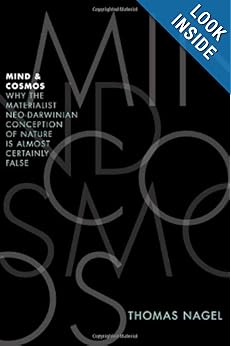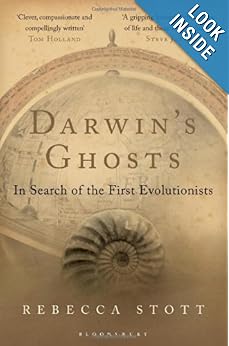Meanwhile, in Darwin’s corner, there is now an English prof somewhere who was traumatized by growing up in a “Creationist household” (along with a growing army of accusers and litigants?)
 Political scientist John West’s essay in The Claremont Review of Books, “Dissent of Man,” is now online here:
Political scientist John West’s essay in The Claremont Review of Books, “Dissent of Man,” is now online here:
It’s not often that a book by a professional philosopher attracts the notice—let alone the ire—of the cultural powers-that-be. One can think of Allan Bloom’s The Closing of the American Mind in the 1980s, but other examples are hard to come by. At any rate, Mind & Cosmos is well on its way to becoming a book that can’t be ignored by the thinking public. Thus far, it has been denounced in the Nation and the Huffington Post, dubbed the “most despised science book of 2012” by the London Guardian, defended in the New Republic (where Nagel’s critics were blasted as “Darwinist dittoheads” and a “mob of materialists”), subjected to a feature story in the New York Times, and put on the cover of the Weekly Standard, which depicted Nagel being burned alive, surrounded by a cabal of demonic-looking men in hoods.
The author has attracted special displeasure from the powers-that-be for using Mind and Cosmos to praise intelligent design proponents such as biochemist Michael Behe and philosopher of science Stephen Meyer. As the New York Times explained, many of Nagel’s fellow academics view him unfavorably “not just for the specifics of his arguments but also for what they see as a dangerous sympathy for intelligent design.” Now there is a revealing comment: academics, typically blasé about everything from justifications of infanticide to pedophilia, have concluded that it is “dangerous” to give a hearing to scholars who think nature displays evidence of intelligent design.
…
An especially brazen attempt [at Darwin myth-making] is Rebecca Stott’s Darwin’s Ghosts: The Secret History of Evolution. Stott’s book purports to tell “the story of the collective discovery of evolution” starting with Aristotle, medieval Islamic writer Al-Jahiz, and Leonardo da Vinci. If it really accomplished that feat, the book would be extraordinary, given that each of those writers believed in the fixity of species and a natural world imbued with purpose.
Though the author herself, a professor of English at East Anglia University, obviously wants to draw a line from Aristotle, et al., to Darwin, she (unlike her book jacket) is frank enough to concede that the thinkers she discusses for the first hundred pages of her book were not in fact evolutionists, Darwinian or otherwise.
Stott highlights what she sees as the oppressive forces of religion squelching heterodox ideas among the valiant, free-thinking proto-evolutionists. For anyone familiar with 19th-century broadsides like Andrew Dickson White’s The Warfare of Science with Theology, this approach is far from fresh. But writing the book was obviously therapeutic for Stott, who makes clear at the start that she was traumatized by growing up in a “Creationist household.” More.
Note: Full title of the essay is “Dissent of Man: A review of Mind and Cosmos: Why the Materialist Neo-Darwinian Conception of Nature Is Almost Certainly False, by Thomas Nagel and Darwin’s Ghosts: The Secret History of Evolution, by Rebecca Stott”
